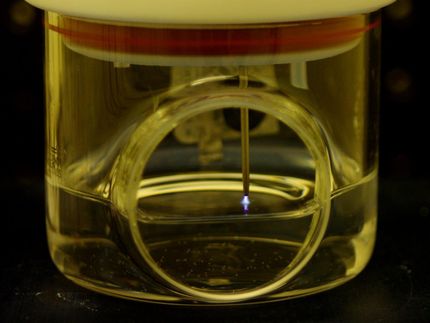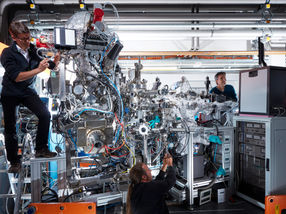ThyssenKrupp VDM and Zenergy Power get funding for research into innovative wire
Advertisement
Zenergy Power GmbH has been granted additional funding to continue research activities in the field of renewable energies in collaboration with ThyssenKrupp VDM and three other research partners. The Ministry of Economic Affairs and Energy of Germany's federal state of North Rhine-Westphalia allocated the grant for the development of techniques required for mass-manufacturing of low-cost superconductive wires for application, inter alia, in wind power generators.
The total costs of the project are estimated at € 1.5 million and public funding by North Rhine-Westphalia will amount to approximately € 860.000. Zenergy Power will receive a subcontract worth in excess of € 470.000 from ThyssenKrupp VDM within the framework of the 36-months collaboration. The project involves Aachen University of Technology, Bonn University and Bonn-Rhein-Sieg University of Applied Sciences to give scientific support to the industrial partners Zenergy Power and ThyssenKrupp VDM. The research project is focussed on superconductors which enable a virtually resistance-free flow of electricity at comparatively high temperatures. In the past, the very low operating temperature of superconductors in the area of minus 269 degrees Celsius ruled out many potential applications. High-temperature superconductors operating at minus 196 degrees Celsius and hence enabling cooling by e.g. liquid nitrogen were found only in 1986. Their ampacity is up to one hundred times that of conventional copper wires. The application of superconductors can therefore reduce both the size and weight of electrical machines while improving their energy efficiency.
Apart from its outstanding electrical properties, the band-shaped superconductor material must offer mechanical strength and longevity. These features can be achieved by a three-layer architecture: A metallic carrier tape is first coated with a buffer material on the surface of which the superconductive layer is then applied. The carrier tape is a foil of, at maximum, 0.08 millimetre thickness and made of a special nickel tungsten alloy developed by ThyssenKrupp VDM. The three-layer composite material is less than half a millimetre thick and up to 20 millimetres wide. The second-generation superconductive wire manufactured by Zenergy Power is expected to offer significant advantages for environmentally friendly electric power generation by enabling a cost-efficient production of superconductor based generators. These generators can substantially reduce the cost of renewable energy.
Most read news
Other news from the department science

Get the chemical industry in your inbox
By submitting this form you agree that LUMITOS AG will send you the newsletter(s) selected above by email. Your data will not be passed on to third parties. Your data will be stored and processed in accordance with our data protection regulations. LUMITOS may contact you by email for the purpose of advertising or market and opinion surveys. You can revoke your consent at any time without giving reasons to LUMITOS AG, Ernst-Augustin-Str. 2, 12489 Berlin, Germany or by e-mail at revoke@lumitos.com with effect for the future. In addition, each email contains a link to unsubscribe from the corresponding newsletter.






























































